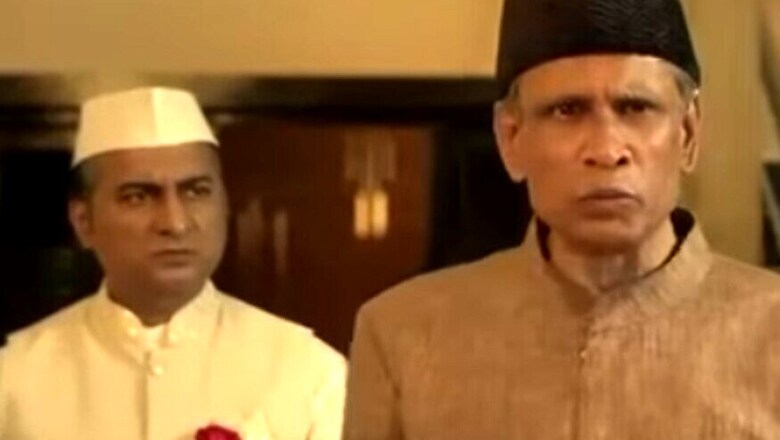
views
Believe it or not, for every movie that runs into a storm with the Central Board of Film Certification or radical political groups, there are probably many more movies which face all the hurt and humiliation, even wrath and rancour most stoically. For every Udta Punjab or Padmavati, sorry Padmavat, or a Sexy Durga, oh sorry again, S Durga or 21 Months of Hell, we have films which stay in the cans for months or years, their makers helpless – largely because nobody writes about these productions. Or, the producer or the director just does not have the wherewithal to go to the media. I think one such movie was a Bengali one by Milan Bhowmik, which got very little Press during its days of struggle. It is called 1946 Calcutta Killings or Danga: The Riot. After months of being harassed, Bhowmik could get the CBFC's Film Certification Appellate Tribunal to clear his work with a few cuts and a U/A tag.
In 2016, the CBFC office in Kolkata refused to certify the movie because it was reportedly “extremely polarising". A letter to the producers is alleged to have said that Danga: The Riot might lead to communal unrest for its untrue statements about political leaders of the time, like Nehru.
It may be recalled here that Nehru was extremely tolerant of criticism, and Shankar's cartoons will bear this out. What is more, Nehru was warm and cordial towards Shankar and even friendly with him, one of India's most celebrated and pioneering cartoonists. When Nehru launched the first issue of Shankar's Weekly in Delhi in 1948, he quipped to the cartoonist: “Don't spare me, Shankar". This is one of the most memorable quotations.
Coincidentally, even Yadu Vijayakrishnan's documentary, 21 Months of Hell (which is still to get a censor's certificate), has a scene of a Kerala cop beating up a protestor, because he was lauding Mahatma Gandhi. “Why don't you praise a Gandhi who is living now, instead of the one who is dead and gone", the policeman's fury is palpable.
Bhowmik's film features several leaders of the time – months leading to the bloody 1946 communal riots which devastated Calcutta, a city known for its historic renaissance, its great artistic endeavour and even classic cinema of the kind Satyajit Ray and Ritwik Ghatak created. Calcutta, once the capital of the British Raj and also known as the Second City of the Empire (after London), was literally set on fire, and its roads were littered with corpses.
My father – whose ship from Singapore docked in Calcutta instead of Madras, because of wartime confusion – once told me that he found an old Sardar cabbie, after much difficulty, to take him to a hotel in the city's central district. He said that Calcutta was literally burning, and he saw horrific incidents of hapless men being stabbed to death even as his taxi crawled along the deserted streets of what was once a lively, bustling place.
The great Calcutta killings followed Muhammad Ali Jinnah's proclamation of the Direct Action Day, and when the Indian National Congress (later the Congress Party) rejected the Muslim League's proposal for a separate homeland for Muslims, revolting, arson, looting and murder began. It is reported that 4000 people were killed, and many more were displaced from their homes. Hindus and Muslims who had lived in perfect harmony turned enemies, and a school friend mine told me that his family had to flee its home and hearth and seek a safe shelter in a friend's house. And when the family returned, their house had been looted, and there was nothing left there.
Bhowmik said in an earlier interview that political leaders were responsible for driving a wedge between communities. And I did see this in the movie with some of the leaders mouthing uncharitable sentences. But then that is history – which cannot be erased, and which needs to be told and retold to this generation and next, so that they do not fall into the same dark pit of bigotry and hatred.
(Gautaman Bhaskaran is an author, commentator and movie critic)
















Comments
0 comment